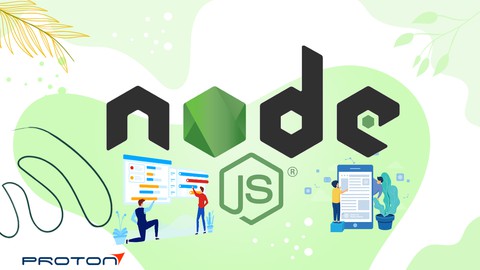Node.js Full Course for Beginners
Course Description

Node.js Full Course for Beginners
Node.js is a popular JavaScript runtime that allows developers to build server-side applications using JavaScript. This full course is designed for beginners who are new to Node.js and want to learn how to build web applications using this powerful technology.
We will start by setting up our development environment, which includes installing Node.js on our local machine. Once the setup is done, we will learn the basics of Node.js, including its event-driven architecture and the use of modules. We will also learn how to use the Node Package Manager (NPM) to install and manage dependencies for our projects.
Next, we will explore the core features of this runtime, including the use of built-in modules such as the file system, HTTP, and event loop. We will also learn about the use of third-party modules, such as Express.js and MongoDB, to build web applications.
After learning the basics, we will dive into more advanced topics such as asynchronous programming, WebSockets, and real-time data streaming. We will learn how to use this runtime to build real-time web applications and how to use WebSockets to create real-time, two-way communication between the client and server.
Once we have a solid understanding, we will put our knowledge to the test by building a simple web application. We will create a web application that allows users to register, login and view their profile details. This will give us hands-on experience in using this runtime to build web applications.
Finally, we will learn how to deploy our web application to a production environment, which includes configuring a web server and making our application accessible to users.
By the end of this full course, you will have a solid understanding of web development tools and the skills to build your own server-side applications using JavaScript.
In summary, this full course covers all the basics of web development, from setting up development environment to building web applications, and deploying it to a production environment. By the end of the course, you will have a solid understanding of JavaScript runtime, its event-driven architecture, modules and third-party packages, asynchronous programming, WebSockets, and real-time data streaming and the ability to build web applications.
Author: Dave Gray
